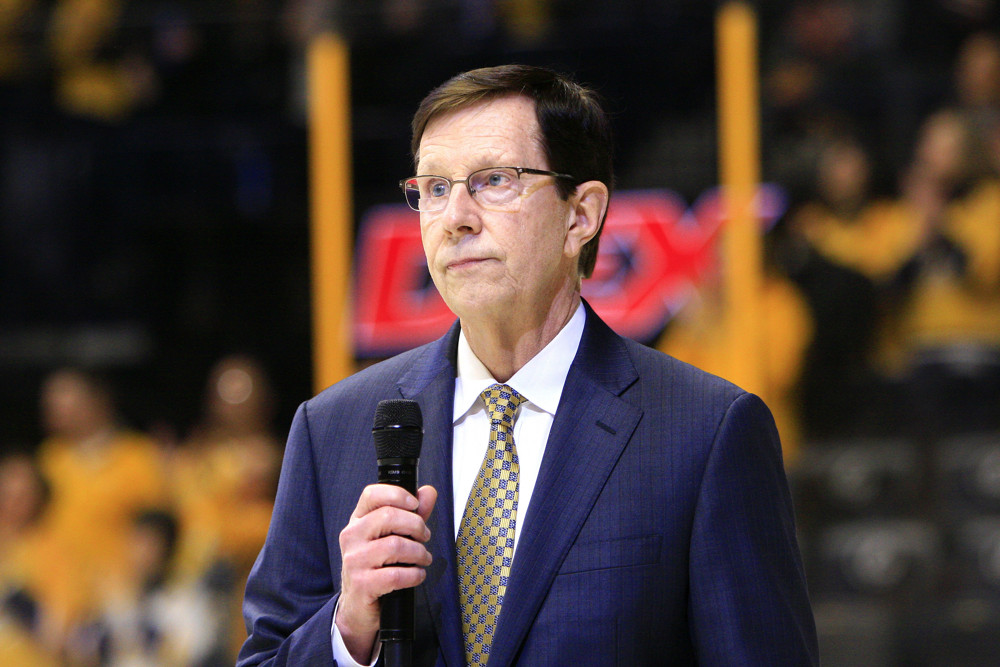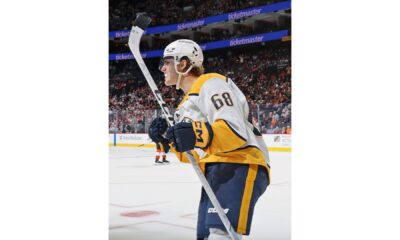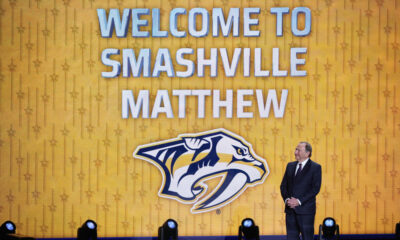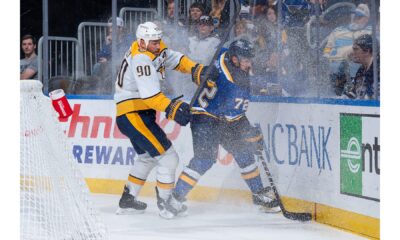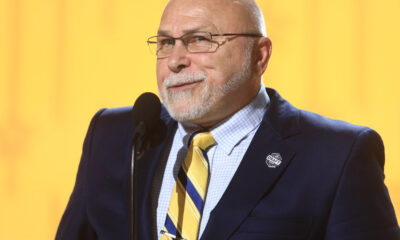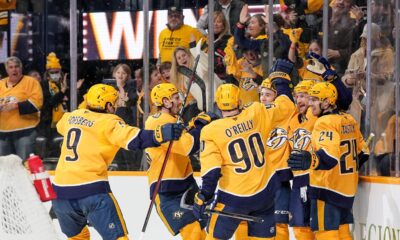Well… the 2021 season certainly was interesting. The Nashville Predators’ roller coaster came to a close with a 4-3 overtime loss in Game 6 of their first-round series versus the Carolina Hurricanes. The series followed one of the most unexpected regular season turnarounds in recent memory. In early March, the Predators were riddled with injuries to the top of the lineup and struggling to put together any level of consistency. According to MoneyPuck, the Predators had a roughly 2% chance of making the playoffs. To put the injuries in context, only six skaters appeared in more than 50 games and none of those were named Josi, Ellis, Johansen, Duchene or Forsberg. Starting with the eight-game road trip, some glimmers of hope suddenly turned into full-blown optimism when from March 21st to April 13th the team went on an 11-2-0 run to jump from lottery participant to playoff contender. In the final weekend of the season, the Predators earned the final Central Division playoff spot and a date with the Hurricanes. The first-round series had everything: double-OT winners, coaches whining about penalties, Erik Gudbranson. Ultimately the Predators didn’t have the firepower to break through against Carolina and the potential Cinderella run came to an end.
The Predators are faced with another transitional offseason. The core of the team hasn’t found the consistent productivity to create a contending team, but the depth and youth of the roster came through in a big way down the stretch. The core of the team is also trending older in age with multiple long term contracts on the books. On the flip side, there is some real talent among the young players who are chomping at the bit for the expanded opportunity to show what they can do. Then comes the question of expansion. Should the Predators protect as much of the core as possible? Try to make a deal with Seattle to offload a big contract? The options are there but they all have risks.
So how to approach the off-season? The Predators do need a real shakeup that changes the complexion of the forward group while building more flexibility going forward. Instead of taking the more expected conservative path let’s try to put together something more aggressive. For the fans, be prepared, some of these choices are going to hurt a bit.
Expansion:
I personally believe that trying to entice Seattle via trade to take a big contract is a terrible idea. GM David Poile must take lessons from Florida and Minnesota during the Vegas expansion draft and avoid the incentive trade. The Predators can’t afford to give up young assets or picks just to offload a contract. Instead, take the approach of protecting as much of the younger depth as possible by exposing every big contract. The fact is, they can only lose one player anyway. Taking the aggressive approach, my protected list looks like this:
- Forwards – Forsberg, Kunin, Sissons, Trenin
- Defense – Josi, Ekholm, Carrier, Fabbro
- Goalie – Saros
- Notable players exempt: Tomasino, Tolvanen, Farrance
This approach leaves Johansen, Duchene, Arvidsson, Jarnkork and Ellis all unprotected. However, the next highest valued players available would be Rem Pitlick or Tanner Jeannot. While they are highly valued by the Predators organization and fanbase (as they should be) they probably do not carry the same cachet league-wide so they might slip through with the other names available. The one that would really hurt is Ellis, who is such a valuable and steadying player on the back end. While he’s on the wrong side of 30 and has a lot of contract left, at full speed he’s unquestionably a top pair defenseman.
Assumptive choice: Arvidsson. Seattle will need scoring and the best choice here is the guy who scores goals. Also his contract will help the Kraken reach the cap floor without being a hindrance to future flexibility.
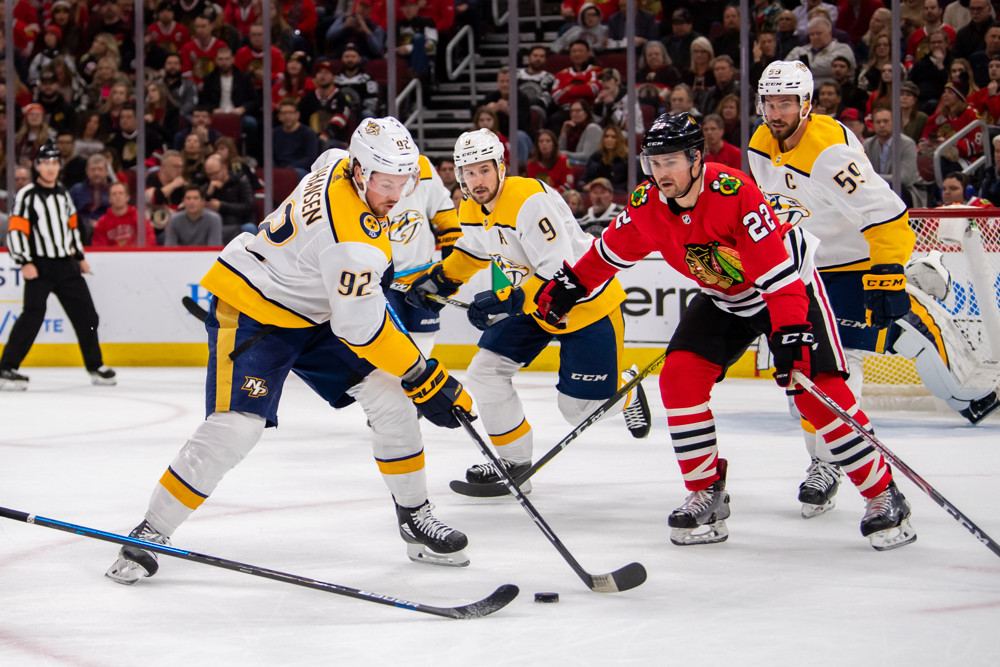
Trades:
This is where most of the work gets done. It won’t be easy as the heavier contracts will be difficult to move.
Trade 1: Ryan Johansen, Frederic Allard, Grant Mismash, 2021 1st round pick and 2021 4th round pick to Arizona for Clayton Keller
Rationale – The conversation of trading Johansen or Duchene is tough. They are both talented centers who have seen their production fall off. At the end of the day, Johansen is younger and has less contract term remaining which makes him the more tradeable player. Arizona is short on true centers outside of Nick Schmaltz and lost their first round pick from the scouting violations. Keller hasn’t lived up to his early promise and has a big contract remaining. The cap dollars are a wash and Arizona cuts 3 years of contract term while getting a big, playmaking center who can pair with any of Garland, Dvorak, Fischer or Kessel. Nashville gets another young winger while opening a top 6 center spot either for a returning Granlund or Philip Tomasino.
Trade 2: Calle Jarnkrok to Calgary for a 2021 3rd and a 2022 3rd
Rationale – Jarnkrok has one year left at a very reasonable $2 million dollars and his lineup flexibility would be welcome on a top heavy Flames roster that drops off sharply after the top 6. Calgary is also flush with mid round picks the next two years which makes this an easy enough deal. Nashville opens up another forward roster spot for the ascending young talent.
Trade 3: Mattias Ekholm and Nick Cousins to Boston for Jake DeBrusk, 2021 1st round pick and 2022 4th round pick
Rationale – I said these choices were going to hurt. Ekholm has been a mainstay on the Predators blueline for years and has given everything to the organization. However, he’s past the age of 30 and only has one year left on his current deal. In their current state, the Predators can’t afford to give a long term deal to another 30+ defenseman. Boston fell short of their expectations in the 2021 playoffs and a depleted defensive corps certainly played a role. Also, they’re a veteran laden team who may be willing to take the risk on one year of Ekholm to shore up the back end for another run. Nashville recoups their first round pick lost in the Johansen trade and adds a big body scoring winger in DeBrusk who is likely needing a change of scenery.
Free Agency:
The crop of likely free agents in 2021 is generally not a good fit for where the Nashville Predators are or what they need. The real considerations are whether to bring back any of the unrestricted free agents that were on the team this past season. The list of UFA’s for the Predators is as follows:
- Forwards – Mikael Granlund, Erik Haula, Brad Richardson
- Defense – Erik Gudbranson
- Goalie – Pekka Rinne
With the above trades pushing out four veteran players there is value in bringing a few of the free agents back. The obvious choices are Mikael Granlund and Pekka Rinne. Erik Haula also merits serious consideration. Erik Gudbranson should be allowed to walk. If Granlund can be retained in the 3-4 year range, Haula in the 1-2 year range and Rinne for another year the roster can round out without sacrificing the opportunities for the young talent. The big question mark would be Haula. He finished the season strong but it would sacrifice a roster spot for Rem Pitlick who has looked comfortable thus far in limited time. I’ll keep Haula in but letting him walk is on the table.
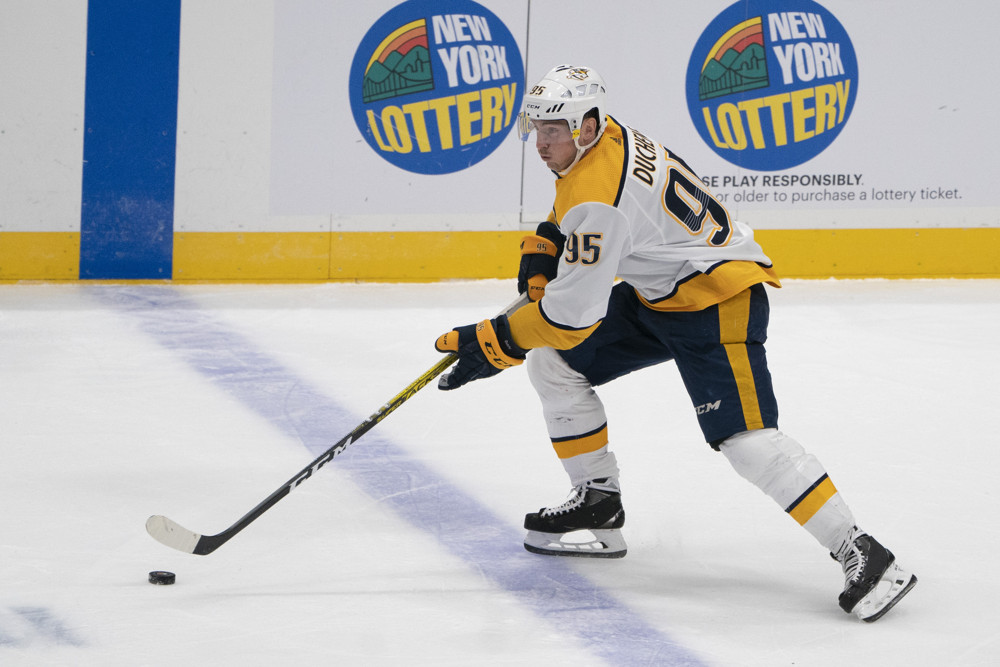
Potential 2021-2022 lineup:
Don’t get me wrong, all of this is unlikely given Poile’s comments throughout the year and the overall aggressiveness of the approach. But come on, wouldn’t you like to see this lineup for opening night:
Forsberg-Duchene-Tomasino
Tolvanen-Granlund-Keller
DeBrusk-Haula-Kunin
Trenin-Sissons-Jeannot
Extras: Grimaldi, Olivier
Josi-Carrier
Farrance-Ellis
Benning-Fabbro
Extra: Borowiecki
Saros
Rinne
The overall roster gets younger and the players coming in still either have term RFA years remaining. The top 6 forward group has speed, skill and finishing. Tolvanen and Tomasino are both given opportunities to play big minutes with top end players. The bottom 6 can play the physical game while still contributing on the score sheet. I’ll admit the defense would be a question mark but it gives three young players with a lot of talent a chance to break through. In goal, Saros gets his opportunity to be a full time starter for a full season while Rinne is kept on as the backup. Connor Ingram returns to Milwaukee to have a full season as the starter as well.
End result… I love where this roster ends up. The mix of skill sets would allow Coach John Hynes and his staff the ability to optimize each group. Also, the overall team speed is increased which has been a problem for the Predators at times. This is also accomplished without sacrificing the ability to grind games like they would see in the playoffs. Would this version of the Nashville Predators be a cup contender? Perhaps not immediately as the youth would still need a little time to grow but the ceiling of the team is unquestionably higher.
Salary cap and draft pick information courtesy of Cap Friendly

